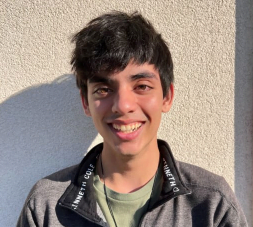
Dual Enrolled Cyber Defense Student Sails into National Cyber League Top 3 Percent
College of Coastal Georgia dual enrollment student and Brunswick High School senior Gavin Noktes competed against thousands of students across the country in the National Cyber League Competition (NCL) Individual Game and ranked 119 out of 6,675 participants.
NCL is a collegiate cybersecurity competition that enables students to prepare for and test themselves against practical cybersecurity challenges that they will likely face in the workforce, including identifying hackers from forensic data, penetration testing, auditing vulnerable websites, and recovering from ransomware attacks. The competition is a mix of e-sports and edutainment that simulates real-life cyberthreats. Notkes participated in the individual games from October 21-23.
“This was my first time participating in NCL. I was super nervous about whether or not I could be competitive,” Noktes said. “While the challenges in the event were difficult, it was exciting to research and figure out how to work with data and formats I’d never seen before in my life. I’m looking forward to the next tournament and continuing to expand my knowledge through the Coastal Georgia cyber program.”
The NCL provides a virtual training ground and community for U.S. high school and college students to develop and demonstrate technical cybersecurity skills.
Assistant Professor of Cyber Defense Dr. Nelbert St. Clair said, “I have mentored many students over the years, but very few high school students. Gavin already possessed a wide range of skills and abilities. The opportunity to help him learn and develop in other areas makes me happy. Gavin is a very bright young man, and I’m looking forward to seeing what he does in the future.”
The NCL was started by cybersecurity academics from several public agencies who came together in 2011 to create an innovative way for students to apply what they were learning. They realized that creating a welcoming environment and getting young people excited about participating was the key to reducing barriers—regardless of age, skill level, or location.